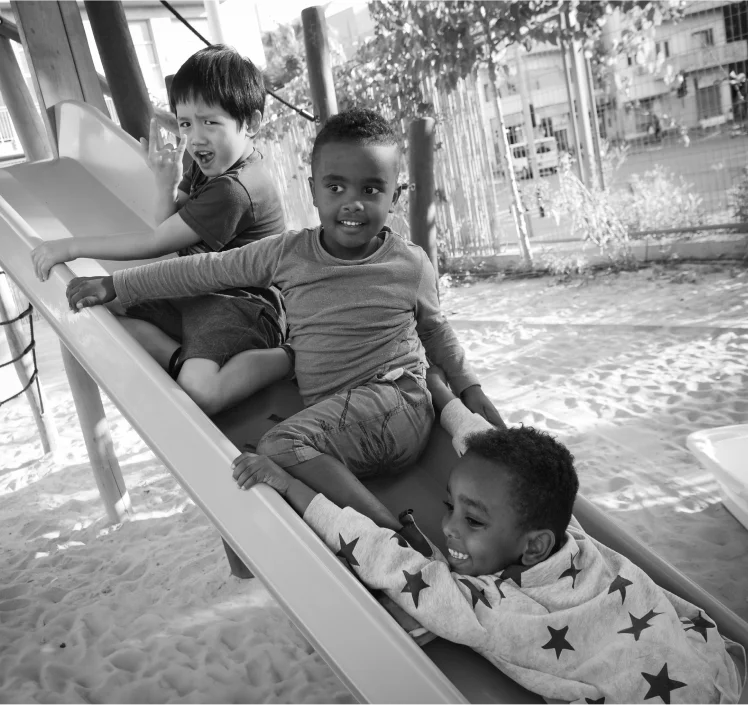Currently, approximately 10,000 undocumented children live in Israel.
Around 80% are children of unrecognized refugees from Eritrea and Sudan, while others are children of migrant workers or whose parental origins are unknown. These children reside in Israel without proper visas, and their families live under constant fear of deportation. Additionally, they are ineligible for Israeli identification cards, resulting in the denial of their basic rights.


They face numerous challenges that significantly impact their development across all areas of life:

Food insecurity caused by economic hardships

Prolonged exposure to life under trauma due to stressful living conditions and the effects of parental trauma

Significant developmental delays: emotional, cognitive, and behavioral gaps.

Limited parental presence due to long working hours

Uncertainty regarding their future

Wandering in unsafe environments and exposure to dangerous situations

Language and literacy gaps

A recent study by researchers from Tel Aviv University examined the transmission of trauma to the second generation, focusing on the case of Unitaf children. The study found a strong connection between mothers’ mental health and their children’s mental health, directly affecting the children’s behavior and educational development. Among the mothers studied, 70% were found to experience post-traumatic stress disorder (PTSD), and 32% showed severe PTSD symptoms.
For these reasons and more, we implement comprehensive care frameworks for children and their families as part of the Unitaf model. We believe that every child deserves an equal opportunity for a better future, a safe environment, and quality education. We know how to create these opportunities.

Our 20 years of work with marginalized communities, particularly with young children in these communities, have made us experts in educating children facing trauma and high-risk conditions. Recently, we established the organization’s Research and Development Department to formalize the extensive knowledge we have gained through research collaborations with universities in Israel and abroad, aiming to drive change for these children.
The department publishes position papers addressing high-quality care and education for children exposed to prolonged trauma, focusing on urgent public policy and societal needs.
We strive to expand our efforts and support more marginalized children across the country
